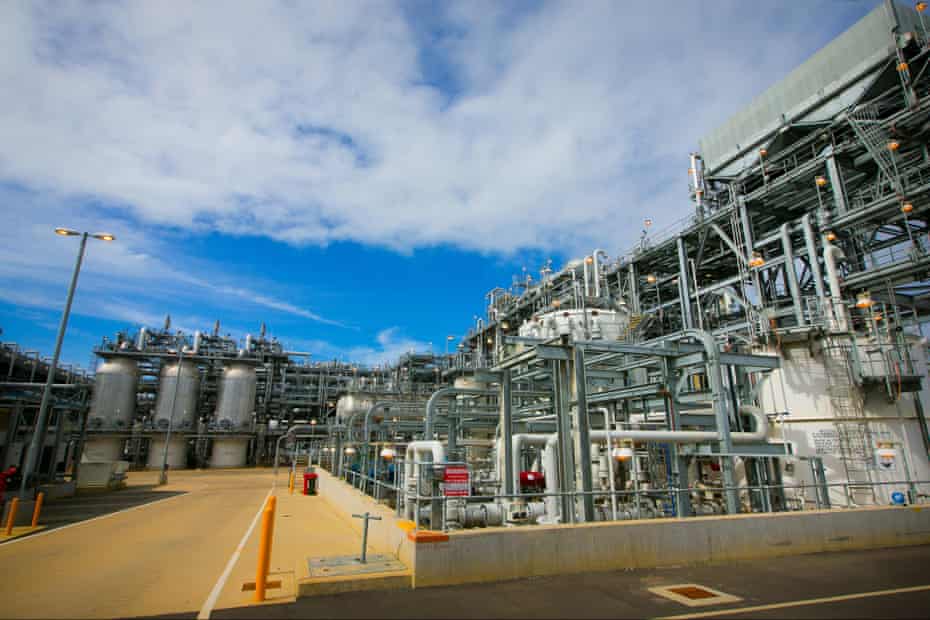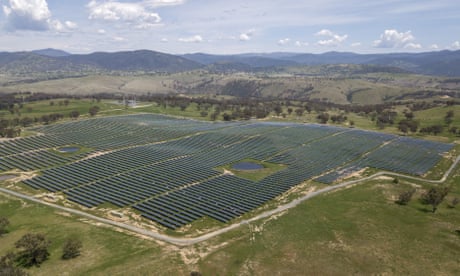Extract from The Guardian
Energy
Open letter warns of ‘intense and lasting pain for households and businesses’ as federal and state governments meet for emergency talks.

State Labor governments say they have “optimism” the new federal energy and climate minister, Chris Bowen, will find a solution to the power crunch, with price spikes and supply issues plaguing much of the country in the wake of a cold snap and mounting global market issues.
With energy ministers to meet via video link on Wednesday afternoon, a diverse group of peak bodies – including the Ai Group, the National Farmers Federation, the Property Council of Australia, the Clean Energy Council and St Vincent de Paul – wrote an open letter calling on politicians to improve supply and increase efficiency in energy markets.

The coalition warned of “intense and lasting pain for households and businesses” without an agreement on Wednesday.
“A staged response is essential because this crisis includes both acute price pain and the likelihood of chronic high prices thereafter,” the joint statement said. “Only a handful of measures are likely to help in the short term and they are unlikely to be sustainable.”
It backed calls for “accelerating our clean energy transition”, including faster building of large-scale renewables and transmission, as well as “a speedier move from natural gas” to alternatives such as electrification, biogas and hydrogen.
The Labor government has called the energy issue a potential “crisis”. Bowen claimed the previous Coalition government had left behind a “binfire” of energy issues, which contributed to a “perfect storm” when combined with myriad other factors such as some coal-fired power stations being offline, global supply shocks linked to the war in Ukraine, and a recent Australian cold snap boosting demand for heating.
“We’re happy to now have a federal government that cares about driving down the cost of living and addressing climate change,” she said.
“Victoria is continuing to transition to renewable energy – and is leading the way with the biggest increase in renewable generation and largest job creation – as we halve emissions by 2030.”
Queensland’s energy minister, Mick de Brenni, said he would meet representatives from Queensland’s energy industry, conservation sector and energy consumers on Wednesday morning, before the meeting, to seek their “guidance”.
Much of the public discussion around the energy crisis has centred on gas, including calls for the federal resources minister, Madeleine King, to pull the so-called gas “trigger” to force companies to increase supply into the market. King said this was still under consideration but stressed any benefits would not flow until 1 January.
But Ted O’Brien, the Coalition’s new shadow minister for energy, claimed even the threat of the trigger would spur gas companies into action now.
“It reflects a lack of commercial experience on the part of Chris Bowen, who’s been speaking disparagingly about it, because the value of the lever is not just in its practical use but in the threat of its use, the threat of intervention,” he told ABC radio.
King said bringing more coal power back online would be key in the short term. The Greens leader, Adam Bandt, slammed the suggestion.
“Propping up coal-fired power stations is throwing good money after bad. No amount of patching up these dirty clunkers will fix the problem,” he said. “We need accelerated investment in new wind, solar, transmission and batteries, not more money for coal.”
Other suggestions – including from the Australian Workers Union secretary, Daniel Walton – have included investigating whether Western Australia’s policy of forcing producers to reserve 15% of their gas could be replicated on a wider national level. King told ABC radio that “nothing is off the table”.
Speaking at the Australian Energy Week conference in Melbourne on Tuesday, the WA energy minister, Bill Johnston, noted “there is no national energy crisis”, pointing out his state was not experiencing the same gas price and supply issues – which he attributed to the reserve.
“There are some troubles on the east coast, but none in Western Australia,” he told the conference. “We’ve had sensible policies to provide stable outcomes, and one important part of that is our gas reservation policy.”
Richie Merzian, the climate and energy program director at the Australia Institute thinktank, called on Bowen’s federal government to limit gas exports and increase local supply.
“Allowing global coal and gas companies to export vast quantities of our resources may have seemed like a good idea at the time, but it has locked us into exposure to volatile global prices,” he said.
“As a matter of urgency, the newly sworn in minister for climate and energy should examine options to curtail gas exports to safeguard a sufficient affordable gas supply for Australians in the short term.”
No comments:
Post a Comment